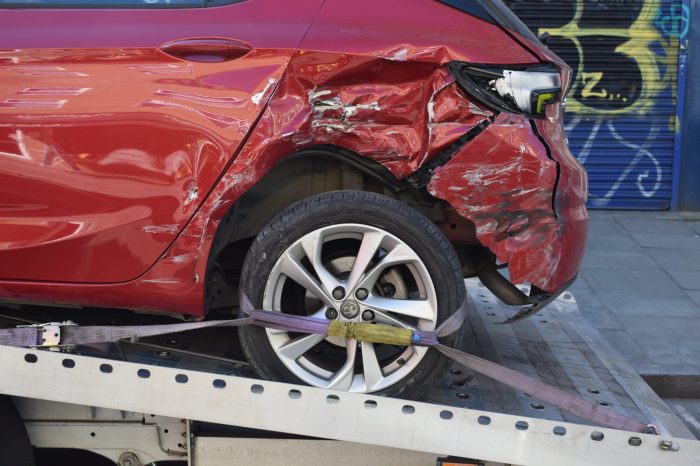
Do you have to have car insurance in Canada? Absolutely! In Canada, car insurance is not just a good idea, it’s a legal necessity. Driving without insurance can result in hefty fines, license suspension, and even the seizure of your vehicle. This article delves into the intricacies of car insurance in Canada, exploring the legal framework, types of coverage, factors affecting premiums, and the process of making a claim.
Understanding car insurance in Canada is crucial for every driver. From mandatory liability coverage to optional comprehensive and collision coverage, navigating the world of insurance can be overwhelming. This guide aims to simplify the process, providing insights into the key aspects of car insurance in Canada and empowering you to make informed decisions.
Legal Requirements
In Canada, driving without car insurance is against the law and carries significant consequences. Every province and territory has its own legislation governing car insurance, ensuring that all drivers are financially responsible for any damages or injuries they may cause.
Penalties for Driving Without Insurance
Driving without car insurance in Canada is a serious offense. The penalties vary depending on the province or territory, but generally include:
- Fines: Drivers caught driving without insurance can face substantial fines, ranging from hundreds to thousands of dollars.
- License Suspension: Your driver’s license may be suspended for a specific period, preventing you from driving legally.
- Vehicle Impoundment: Your vehicle may be impounded until insurance is obtained.
- Criminal Charges: In some cases, driving without insurance can result in criminal charges, leading to more severe penalties, including jail time.
- Higher Insurance Premiums: Even if you get insurance after being caught driving without it, you may face significantly higher premiums in the future.
It is crucial to remember that even if you are not involved in an accident, driving without insurance can lead to these serious penalties.
Types of Car Insurance Coverage Mandated by Law
Most provinces and territories in Canada mandate specific types of car insurance coverage, ensuring that drivers have adequate financial protection:
- Third-Party Liability Coverage: This coverage is essential and protects you financially if you cause an accident that injures someone or damages their property. It covers the costs of medical expenses, lost wages, and property damage incurred by the other party.
- Accident Benefits Coverage: This coverage provides financial assistance to you and your passengers in case of an accident, regardless of who is at fault. It covers medical expenses, rehabilitation costs, lost income, and death benefits.
- Direct Compensation Property Damage Coverage: This coverage simplifies the process of claiming damages to your own vehicle in case of an accident. It allows you to file a claim directly with your own insurer, regardless of who is at fault.
These mandatory coverages ensure that drivers have a safety net in case of accidents, protecting themselves and others financially.
Types of Car Insurance: Do You Have To Have Car Insurance In Canada

In Canada, there are several types of car insurance available, each offering different levels of coverage and protection. Understanding the various options and their features is crucial for making an informed decision that aligns with your individual needs and financial circumstances.
Basic Coverage
Basic car insurance is mandatory in Canada and includes liability coverage, which protects you financially if you cause an accident. This type of insurance covers the following:
- Third-Party Liability: This covers damages to other people’s property or injuries caused by you in an accident. The minimum coverage required in Canada is $200,000, but you can choose higher limits.
- Accident Benefits: This provides financial assistance for medical expenses, lost wages, and other expenses related to injuries sustained in an accident, regardless of who is at fault.
Basic coverage is the most affordable option, but it offers limited protection. It does not cover damage to your own vehicle.
Comprehensive Coverage, Do you have to have car insurance in canada
Comprehensive coverage is an optional add-on to basic insurance. It protects your vehicle from damages caused by events other than collisions, such as:
- Theft
- Vandalism
- Fire
- Natural disasters
Comprehensive coverage is essential if you want protection for your vehicle against unexpected events. However, it is typically more expensive than basic coverage.
Collision Coverage
Collision coverage is another optional add-on to basic insurance. It covers damages to your vehicle if you are involved in a collision, regardless of who is at fault. This type of coverage can help pay for repairs or replacement of your vehicle.
Other Types of Coverage
In addition to the core types of coverage, there are several other options available, including:
- Uninsured Motorist Coverage: This protects you if you are involved in an accident with a driver who does not have insurance.
- Roadside Assistance: This provides assistance for situations like flat tires, jump starts, and towing.
- Rental Car Coverage: This covers the cost of a rental car if your vehicle is damaged or stolen.
- Customized Coverage: You can tailor your insurance policy to meet your specific needs by adding additional coverage options, such as coverage for specific accessories or higher limits for liability or accident benefits.
Factors Influencing Insurance Costs

Your car insurance premium is not a fixed amount. It’s calculated based on several factors that assess your risk as a driver. Understanding these factors can help you make informed decisions to potentially lower your premiums.
Driving History
Your driving history is a major factor in determining your insurance costs. Insurance companies consider your past driving record to assess your risk.
- Accidents: Having a history of accidents, especially those you were at fault for, will significantly increase your premiums. This is because you are statistically more likely to be involved in another accident.
- Traffic Violations: Receiving traffic tickets, such as speeding tickets or driving under the influence (DUI), indicates a higher risk of future violations. These violations will also increase your premiums.
- Driving Record Cleanliness: A clean driving record with no accidents or violations can lead to lower premiums. This shows insurance companies that you are a responsible driver.
Vehicle Type
The type of vehicle you drive also influences your insurance costs.
- Make and Model: Certain car models are known for their safety features, while others are more prone to accidents. Insurance companies consider the safety record of specific models when setting premiums.
- Value: More expensive cars generally have higher insurance premiums because they cost more to repair or replace in case of an accident.
- Performance: High-performance vehicles with powerful engines are often associated with a higher risk of accidents. Insurance companies may charge higher premiums for these vehicles.
Location
Your location plays a role in your insurance premiums.
- Population Density: Areas with high population density tend to have more traffic and a higher risk of accidents, which can result in higher insurance premiums.
- Crime Rates: Areas with higher crime rates may also have higher insurance premiums, as there is a greater risk of vehicle theft or vandalism.
- Weather Conditions: Regions with harsh weather conditions, such as heavy snowfall or frequent storms, can lead to increased accident risks and higher insurance premiums.
Finding and Choosing Insurance
Finding the best car insurance in Canada can feel overwhelming, but it doesn’t have to be. With a little research and planning, you can secure a policy that fits your needs and budget. This section provides a guide to help you navigate the process of finding and choosing the right car insurance for you.
Comparing Quotes from Different Providers
It’s crucial to compare quotes from multiple insurance providers to find the best deal. Here’s how to make the most of this process:
- Use online comparison websites: Websites like Kanetix, Ratehub, and InsuranceHotline allow you to enter your information once and receive quotes from various insurers. This saves you time and effort.
- Contact insurance providers directly: While online comparison tools are convenient, you can also contact insurance providers directly to discuss your specific needs and get personalized quotes. This allows for a more detailed conversation and ensures you understand all the policy options.
- Be consistent with your information: When comparing quotes, ensure you use the same information for each provider. This includes details about your vehicle, driving history, and coverage preferences. Inconsistency can lead to inaccurate comparisons and misleading results.
- Consider the overall value: Don’t solely focus on the cheapest quote. Look at the coverage offered, customer service reputation, and financial stability of the insurer. A slightly higher premium might be justified if it comes with better coverage or a more reliable company.
Factors to Consider When Choosing an Insurance Provider
Once you have a few quotes, it’s time to choose the provider that best suits your needs. Here are some key factors to consider:
- Coverage options: Different insurers offer various coverage options, such as liability, collision, comprehensive, and accident benefits. Ensure the chosen policy provides adequate coverage for your needs and financial situation. For example, if you have an older car, you might consider dropping collision and comprehensive coverage, as the cost of repairs might exceed the car’s value.
- Discounts: Many insurers offer discounts for safe driving, good grades, bundling policies, and other factors. Take advantage of any discounts you qualify for to reduce your premium.
- Customer service: A good insurance provider should have excellent customer service. Research the company’s reputation and read customer reviews to get an idea of their responsiveness and helpfulness. Consider contacting them directly with a simple question to assess their communication and problem-solving abilities.
- Financial stability: Choosing a financially stable insurance provider is crucial. Research the company’s financial history and ratings from agencies like AM Best. A financially sound company is more likely to be able to pay claims in the event of an accident.
- Claims process: Investigate the insurer’s claims process. How easy is it to file a claim? How quickly are claims processed? Research the insurer’s reputation for handling claims fairly and efficiently. Consider asking for a detailed explanation of the claims process and requesting examples of past claim experiences.
Making a Claim
Making a claim with your car insurance provider is a crucial step in the event of an accident or damage to your vehicle. This process involves reporting the incident, providing necessary documentation, and seeking compensation for your losses.
Reporting an Accident
It’s essential to report an accident to your insurance company as soon as possible. This helps ensure a smooth and efficient claim process.
- Contact your insurance company: Call your insurance provider immediately after the accident. They will guide you through the initial reporting steps and provide you with a claim number.
- Provide details: Be prepared to provide the following information:
- Date, time, and location of the accident
- Details of the vehicles involved, including license plate numbers and VINs
- Description of the accident and any injuries
- Names and contact information of any witnesses
- Police report number (if applicable)
- File a police report: If the accident involves significant damage, injuries, or legal issues, it’s crucial to file a police report. The report will serve as official documentation of the incident.
Common Claims and Documentation
Car insurance claims can cover a range of incidents, from minor fender benders to more serious accidents.
- Collision: This covers damage to your vehicle caused by a collision with another vehicle or object.
- Comprehensive: This covers damage to your vehicle from events other than collisions, such as theft, vandalism, fire, or natural disasters.
- Third-party liability: This covers damages you cause to other people’s property or injuries you inflict on others.
When filing a claim, you’ll need to provide supporting documentation to validate your request. Common documents include:
- Police report: If applicable, this report provides official details of the accident.
- Photos and videos: Capture images of the damage to your vehicle and the accident scene. These visuals provide evidence of the incident.
- Witness statements: If there were witnesses to the accident, gather their contact information and request written statements.
- Repair estimates: Obtain estimates from reputable repair shops to determine the cost of repairs.
- Medical records: If you sustained injuries, provide copies of your medical bills and treatment records.
Claim Processing
Once you’ve reported the accident and submitted the necessary documentation, your insurance company will begin processing your claim.
- Investigation: The insurance company will investigate the accident to determine liability and the extent of the damage.
- Negotiation: The insurance company will negotiate with you and any other parties involved to settle the claim.
- Payment: If your claim is approved, the insurance company will issue payment for your covered losses. This could include repairs, replacement costs, medical expenses, and other related expenses.
Final Conclusion

Navigating the world of car insurance in Canada can seem complex, but with the right information, you can make informed decisions to protect yourself and your finances. By understanding the legal requirements, exploring different coverage options, and considering factors that influence premiums, you can find the best car insurance plan for your needs. Remember, driving without insurance is not only illegal but also exposes you to significant financial risks in case of an accident. Make sure you’re adequately insured and enjoy the peace of mind that comes with it.
Question Bank
What are the minimum car insurance requirements in Canada?
Every province and territory in Canada has its own minimum car insurance requirements. These typically include liability coverage to protect you financially in case you cause an accident.
How do I find the best car insurance rates?
Compare quotes from multiple insurance providers. Consider factors like your driving history, vehicle type, and coverage needs.
What happens if I get into an accident without car insurance?
You could face serious consequences, including fines, license suspension, and legal action from the other party involved in the accident.
Can I get car insurance if I have a poor driving record?
Yes, but you may have to pay higher premiums. Some insurers offer programs for high-risk drivers.




